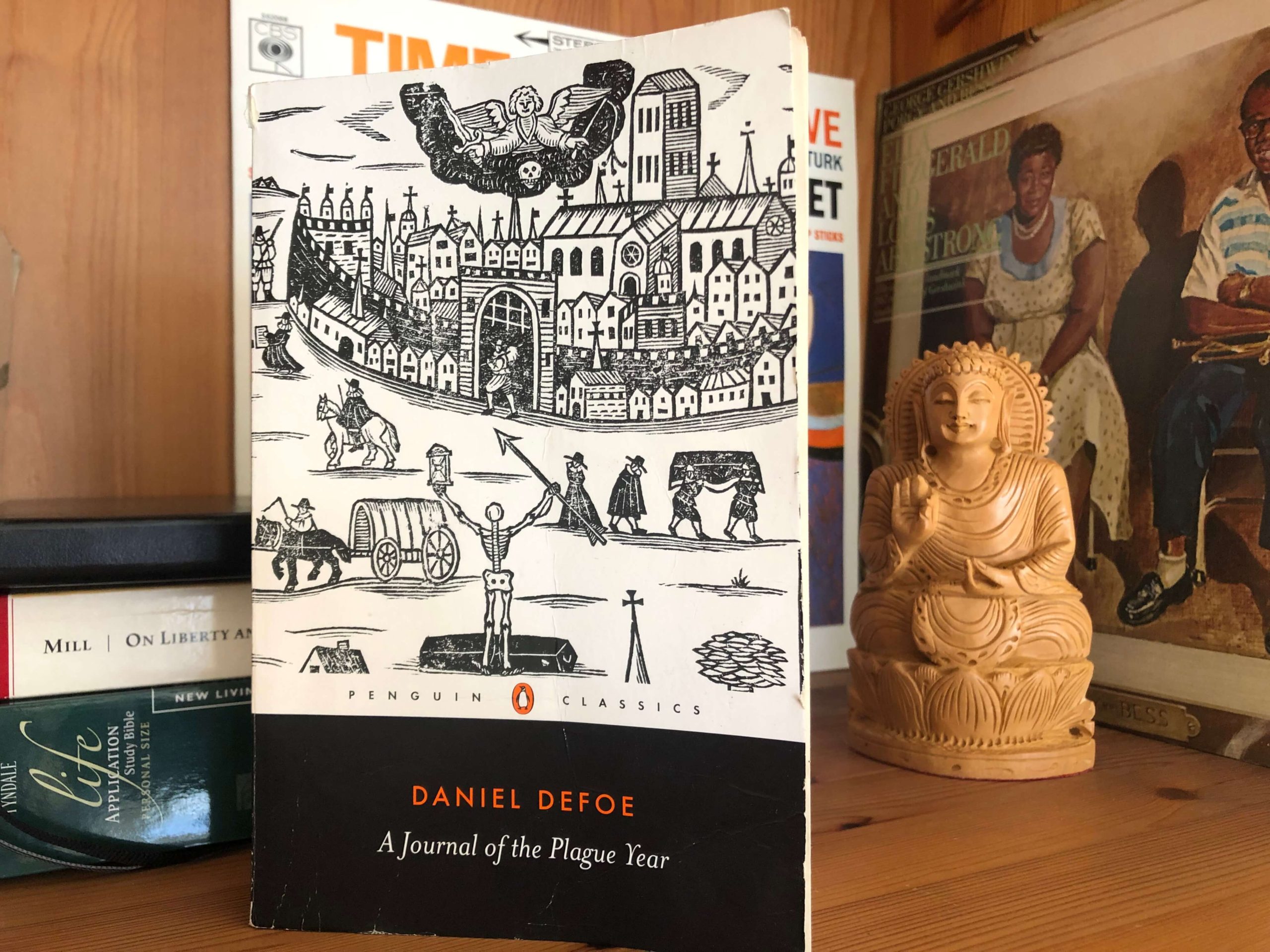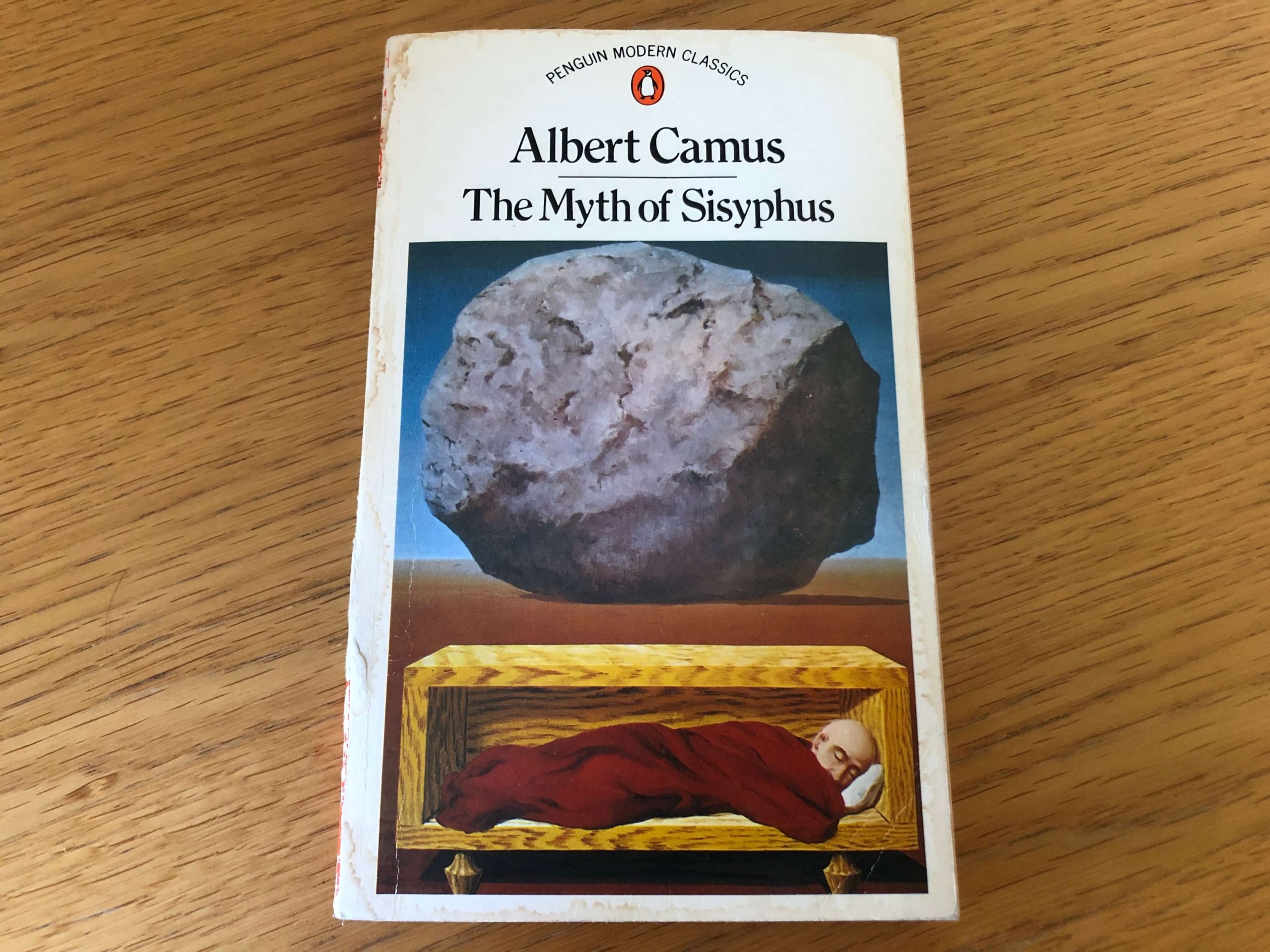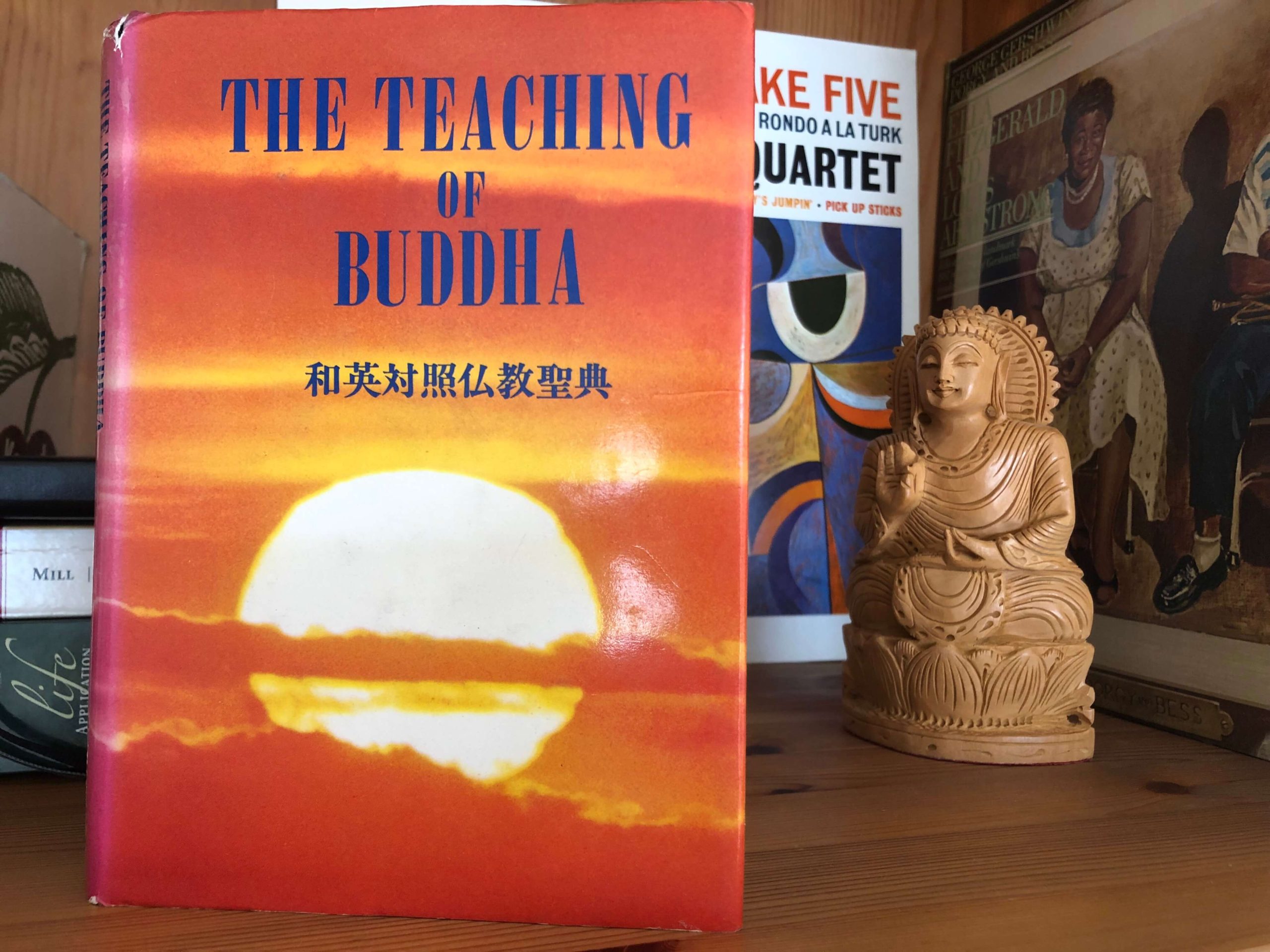So it’s Quarantine Day.
Again.
And I’m not getting as much reading done as I would like. Despite reading for hours each day.
I’ll block off two hours in the evening, usually after a run, and sit on my balcony with a stack of books and a notebook and pen. It’s the notebook and pen that prohibit me from flying through the volumes.
You can get a lot of reading done in two hours, right? Depends on the reading.
I read 2-3 pages per hour when I have my notebook beside me.
When I get to the end of a page, I pause and ask myself:
- What did I just read?
- What was the author’s argument?
- What terms did they use to express their argument?
- Do I agree?
As I’m going through, I underline, circle, annotate, and marginalia-ise my page. I converse with the author across time and space. Then I’ll slowly, thoughtfully, reflectively, pen a response in my notebook.
By the end of the session, I’ve done a lot of thinking but not so much reading. And it leaves me wanting more. If only I could read all day! Alas, I do still have work to do.
Here’s what I’m reading and loving in April 2020:
A Journal of the Plague Year by Daniel Defoe
Defoe is often credited as the literary pioneer responsible for the rise of the novel. You already know his more famous Robinson Crusoe. Perhaps you know Moll Flanders. But did you know he wrote a somewhat fictional account of the Great Plague of the 17th Century?
If I can convince you to read any book during lockdown, I implore you to get a copy of this work. The correlations with the current-day coronavirus crisis are staggering. You’ll see that human response to deadly epidemics is ingrained in our nature – everything from social isolation to lockdowns, it’s not new. Eye-opening stuff.
Check out A Journal of the Plague Year here.
The Myth of Sisyphus by Albert Camus
This book is Camus’ attempt to answer one of the most fundamental questions of philosophical thought: is suicide ever justified? It’s a complimentary work, in a way, of his The Rebel, which attempted to answer whether murder is ever justified.
Camus’ contention is that most philosophers, especially the nihilists that arrive at the conclusion that life is without meaning, are cowards, liars, and full of shit. Why have they not taken their lives to back up their assertion? Camus believes that suicide is not justified and what results is a speedy yet heavy read that is sure to make you think.
Check out The Myth of Sisyphus here.
The Book of Job
Why does God let bad things happen to good people? That’s the question at the crux of one of the most difficult, potent, yet rewarding biblical stories of all time – the story of a man completely blameless, a servant of God, who has unspeakable atrocities dealt him by Satan: the collapse of his business, the death of his family, the decline of his own health.
We’re in a global crisis, which has revealed just how Job-like some people have the capacity to be. If the current climate has left you questioning the meaning of life, and the nature of good and evil, you’ll want to dedicate some time to wrestling with this impeccable tale.
I recommend the NIV Study Bible if you wish to read the Book of Job.
Extraordinary Popular Delusions and the Madness of Crowds by Charles Mackay
Bubbles and mania have always existed. They didn’t bloom in our collective behaviour specifically for the housing crisis, cryptocurrency, or COVID-19. You can’t get a really good understanding of human nature unless you go far enough back for it so seem like a fiction. That’s one of the many powers of history.
This book is an old one, but it deals with some fascinating topics that are worth your time: tales of charlatan alchemists, extortionately priced tulips, and witch-burning.
Check out Extraordinary Popular Delusions and the Madness of Crowds here.
The Teaching of Buddha
I picked up this gorgeous bilingual (Japanese-English) second-hand volume of the teachings of Buddha in a Wiccan bookstore in London, right before the lockdown came into place. And I’m so glad because it offers some of the most soothingly conceived wisdom I have ever encountered.
If you struggle to fall asleep from worry at night, you’ll definitely want to check out this book. The last time I remember being so positively affected by an ancient book was when reading Marcus Aurelius’ Meditations. Why can’t all religion manifest itself as charmingly and lovingly as Buddhism?
Check out The Teaching of Buddha here.
Memoirs of a Geisha by Arthur Golden
Got to have some escapist fiction thrown in there! I’ve got plenty of lovely stories lined up to read, but this one is waiting on my bedside at the moment. I know this has been the focus of some scorn due to it not being a faithful representation of Japan, but I’ve wanted to read this for many years, especially after my trip to Kyoto. So when my girlfriend recommended it, I had to get stuck in. I’ll let you know whether I think it worth reading or not, but so far I’m enjoying it.
Check out Memoirs of a Geisha here.
The Art of Loving by Eric Fromm
Misha has recommended the work of Eric Fromm too many times for me to not take notice. He recommended him again the other day after giving me a schooling in the Book of Job (did you know that Satan means “accuser”?). So I picked up Fromm’s most popular work and found it immediately compelling.
The thesis is basically that most people erroneously accept love and believe love to be a passive act. People try to be more “loveable”. But love is a verb, and Fromm concentrates on explaining the art behind how to love. Fascinating stuff.
Check out The Art of Loving here.
Aristotle for Everybody by Mortimer Adler
Aristotle and Adler have both been incredibly instrumental in my development as a reader and thinker. As I’ve been pondering the idea of creating a series of lectures about Aristotle, I decided I’d check out what my friend Mortimer has to say about him. If this one’s anywhere near as good as his groundbreaking How to Read, I’ll binge-read more of his stuff.
Check out Aristotle for Everybody here.
King, Warrior, Magician, Lover by Robert Moore
I’m fascinated with Jungian archetypes, particularly discussions around the shadow. So I picked this one up basically on the title’s merit alone. I haven’t delved in yet, but a quick glance concerns me that an interesting psychoanalytical discussion could potentially be polluted by an over-concentration of men’s rights messaging. Fingers crossed it’s what I think it is.
Check out King, Warrior, Magician, Lover here.



Pierre Manent “Modern Liberty and It’s Discontents” – how we lost faith and reason and were left with amoral science and individuals with no context.
Manent recommends the wisdom of the Middle Ages as a way out. So, back to Aquinas. But first I need Aristotle. That’s how I found your excellent and witty podcast.
Thank you for the recommendation and your kind praise, Joanne! Interesting recommendation and one that piques my curiosity as I’ve been much enjoying Mill’s ‘On Liberty’, which makes mention of Tocqueville’s analysis of democracy, which now ties into Manent. I plan to deep dive into Aquinas before the year is out – so much to discuss!